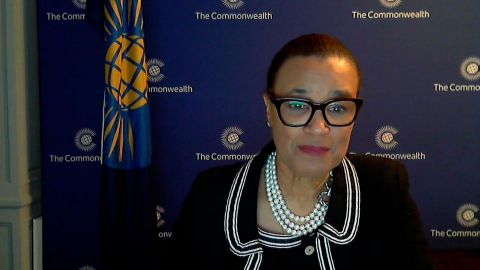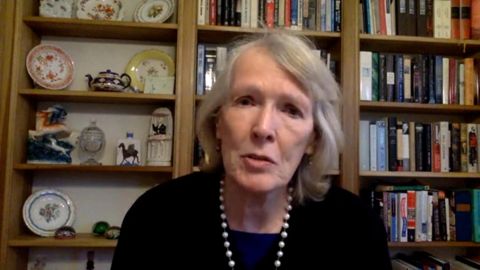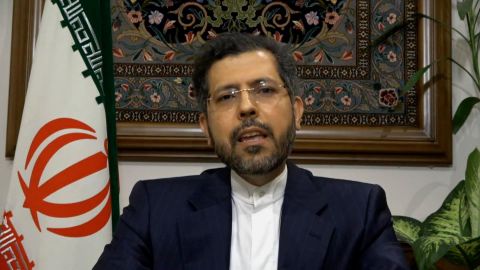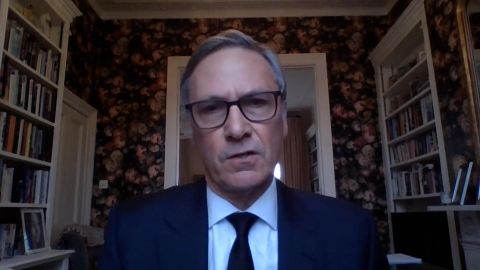Read Transcript EXPAND
MARGARET MACMILLAN, HISTORIAN AND AUTHOR: Well, he came from a world — and he himself was, I think, someone who felt a great sense of duty. And it seemed natural to him to take chances and to risk his life. And he was — although he was a royal, he was someone who had to make his own way in the world. He didn’t have a lot of money. And I think, if he had not become the consort of the queen, he might well have remained in the Navy and had a very distinguished career there. But I think that’s partly what we’re remembering today, this idea of someone who, uncomplainingly — of course, sometimes, he complained — we all were — but, on the whole, uncomplainingly did a job which can’t have always been easy. And, of course, in the Second World War, what he did was not only not easy, but very dangerous.
CHRISTIANE AMANPOUR: Let me ask you a little bit about what I was just talking to Baroness Scotland about. She’s head of the Commonwealth of Nations, and was saying what a transformative effect Prince Philip had, along with the queen, on moving and shaping and modernizing and getting behind equality and all of those things in what had been an empire. I want to play what Prime Minister Trudeau has said today about the passing of Prince Philip, the Canadian prime minister. Let’s just play that. Do you know what? I’m going to read it. He said: “Prince Philip was a man of great purpose and conviction, who was motivated by a sense of duty to others .He will be fondly remembered as a constant in the life of the queen.” So, beyond that, Margaret MacMillan — and you are part Canadian, and I think I’m talking to you from there. What does the commonwealth, from your perspective and from Canada’s perspective, mean today?
MACMILLAN: It’s an organization that’s changed a lot. And I think Prince Philip and the queen have had a lot to do with it. I mean, I would have thought when I was much younger that it wasn’t going to last. The British Empire was rapidly fading after the Second World War. And although it had become called a commonwealth by this point, I think a lot of us probably thought that it would no longer remain an organization. And it did. It became a different sort of organization, as Baroness Scotland was explaining. It was no longer a political organization, no longer sharing defense organizations, no longer one part of the empire, Britain, ruling another part of the empire. That had become obsolete. It had gone. But what the commonwealth became is a sort of club, a club of people who shared, for better or worse, some sort of common history, had been through some things together, who had things to talk about, had ways that they might want to help each other. And I think, in a way, I’m surprised. I would have been surprised. The younger me would have been surprised that it did last so long, and that there still are ties in the commonwealth, personal ties, ties of culture, academic ties. It’s no longer a major political organization. But it still, in a way, I think, matters. And I think it matters because any organization that brings people of very different parts of the world, very different cultures, very different histories, that brings them together and enables them to talk to each other is probably a good thing in our world.
About This Episode EXPAND
Experts reflect on the life and legacy of Prince Philip, the Duke of Edinburgh. Plus: Iran’s Foreign Ministry Spokesman Saeed Khatibzadeh discusses efforts to revive the 2015 Iran nuclear deal.
LEARN MORE



